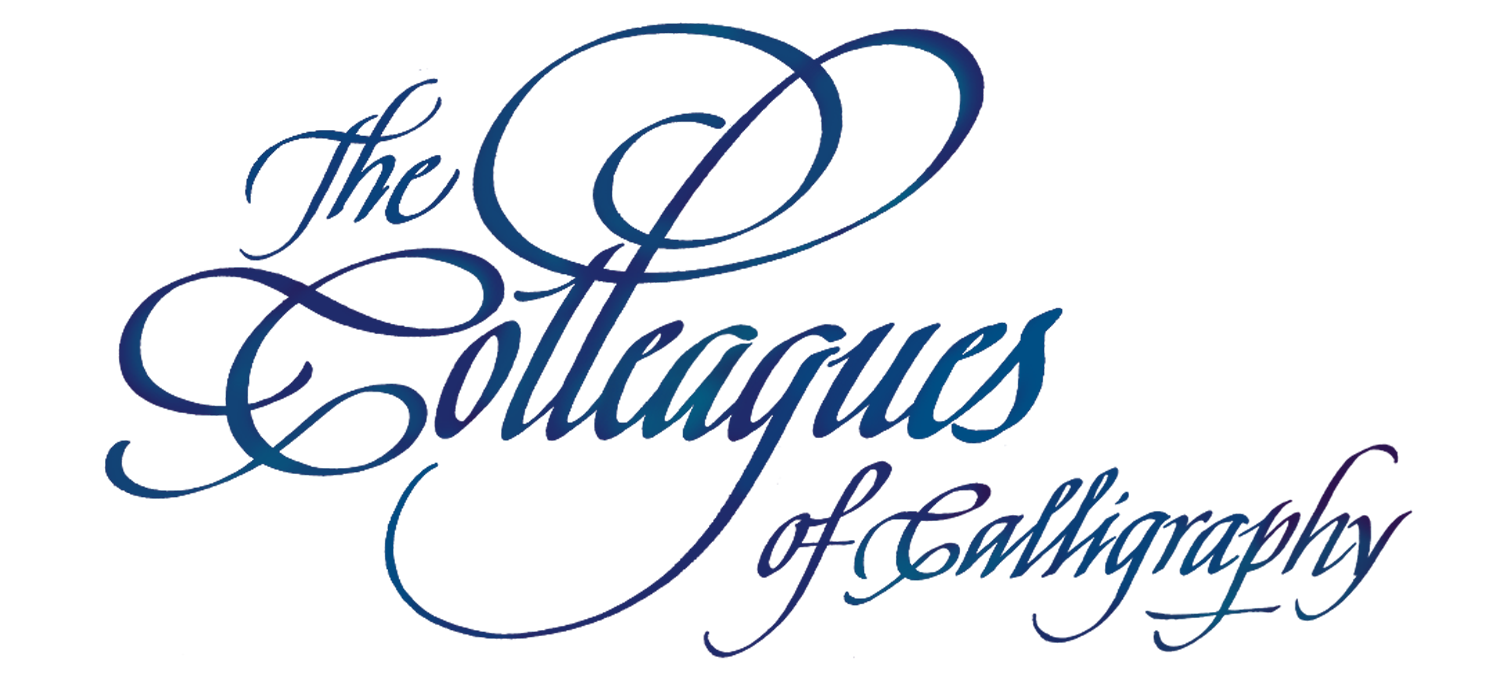In person at the Highland Park Library
12:30pm - Meet & Greet / CoC News & Updates
Program starts at 1:00pm
PROGRAM
Many of us have our "go to" lettering styles. Your hand just knows what to do. Has it perhaps become too automatic, too familiar, too boring?
To prepare my presentation on double stroke gothic majuscules I went searching for an exemplar that I hadn't tried, and had strong, interesting graphic shapes without being ornate and fussy. In my files from the last century I came across a handout from Marsha Brady's gothic class, attributed to Eugen Nerdinger and Lisa Beck, that caught my eye.
So I lived with these letters for over six months.
We will look at the original exemplar and then move to my understanding of the letters, writing them according to their families arranged by similarities in pen strokes that will have you anticipating what comes next, why these letters are cohesive, and how to control your letters using your "carpenter's eye".
Jean Formo always encourages us to "play" in the studio, which is something that's hard for me to do. I will show the results of my playing as I try to find a way to use these letters in an untraditional graphic way.
Materials Recommended
Writing large is fun but also very helpful when studying an alphabet because you can really see what you're doing and what you did.
I'll be using a Speedball C-0 nib and Bienfang graph paper 8 squares to the inch. Graph paper is great for writing vertical alphabets.
Be ready to write, choosing a large nib, and paper and writing fluid that work well together for you.
pen writing fluid - walnut ink, gouache, your favorite
graph paper and/or practice paper
pencil
red pencil
t-square or ruler
blue painter's tape
small water jar
paper towels
#4 or #5 automatic pen - only if you have one and want to go big at the end
A little about Kris
My gateway event that led to a lifetime of learning about letters, occurred in the mid 1960's. The high school art assignment was to illustrate and letter a children's book. We were given crusty ink and nibs, a manual, and a "good luck" - and I've been dipping ever since.
Ten years later I took a real calligraphy class from Sharlene Jacobson, and she introduced me to the Colleagues. This led me to all of the Calligraphy Connections and 22 years of demoing gothic lettering at the Renaissance Festival. After this I taught calligraphy at MCBA, Minnetonka Center for the Arts, and Hopkins Community Ed until covid brought it to a halt and the muses left my studio.
I got excited when the Colleagues invited me to teach a Gothic majuscule class in April. Preparing to teach a class is invigorating and the muses are peeking in my windows.
Kris MacDonald
Member Programs are free for members. However, members are encouraged to bring guests who can attend one free program in a season.



